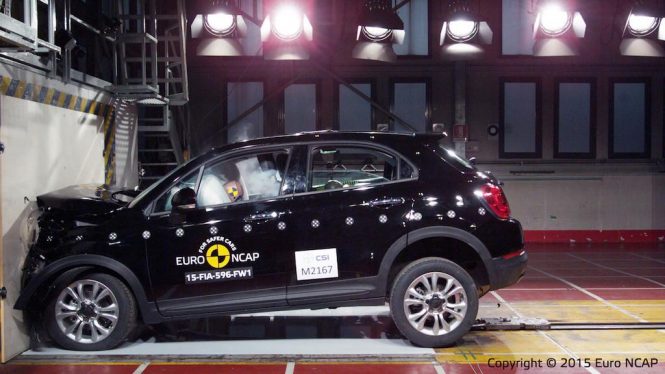WHO has asked governments to intervene and apply basic vehicular safety standards prescribed by the Global NCAP in all cars irrespective of the market.
In its 2015 Global Status Report on road safety, a worried World Health Organisation (WHO) revealed that less than half of countries implement the minimum United Nations (UN) standards on vehicular testing and warned that governments have a responsibility to take steps needed to ensure their citizens have access to safe vehicles.
The WHO carried out a survey on implementation of seven priority vehicle safety standards (recommended by Global NCAP) across the globe. The seven standards cover seatbelts, seatbelt anchorages, front and side impact, Electronic Stability Control, pedestrian protection and child seats. As per the report, only 40 out of 193 UN Member States adhere to the standards which account to a mere 20.7 percent. The report argues that there is an urgent need for these minimum vehicle standards to be implemented by every country.
The WHO is concerned that in the absence of appropriate standards, automobile companies are able to sell old designs that no longer legal in well-regulated countries which means discarding life-saving technologies can be allowed in new products in markets where regulations are weak or non-existent. The report further indicates that the standards are notably absent in many of the large middle-income countries that are major car manufacturers which are now responsible for almost 50 percent of the world’s passenger car production (67 million units in 2014). Unfortunately, India is part of that list.
The most important crash-worthiness regulations helping to protect occupants withstand front and side impact crashes are poorly implemented globally. According to the report, just 49 countries (27%) apply the UN frontal impact test regulation and 47 countries (26%) apply the side impact test regulation; again these are predominantly high-income countries. The WHO wants de-specification and wants the same vehicles to be sold across all countries, not just limiting the availability of these technologies to passenger cars, but the same should be implemented on commercial vehicles as well.
The status report confirms that each year 1.25 million people die as a result of road traffic crashes. Though the level of fatalities is stabilising but the pace of change is too slow, feels WHO Director-General Dr. Margaret Chan. Commenting on the WHO’s Report, NCAP said that it warmly welcomes WHO’s call for action by governments to apply the most important vehicle safety standards. This is needed to democratise car safety so that car buyers everywhere have access to the same minimum levels of safety. Stating further, NCAP was pleased to know that WHO recognises the contribution of its crash tests as catalysts for action in order to improve vehicle safety supporting UN’s global goals and the target to reduce road deaths to half by 2020.
India is set to mandate Frontal Offset Testing (@ 56 km/hr), Side Impact testing, Pedestrian protection testing, Rear Impact testing, Child dummy dynamic crash testing to all new vehicles in 2017, under Bharat New Vehicle Safety Assessment Program (BNVSAP).

